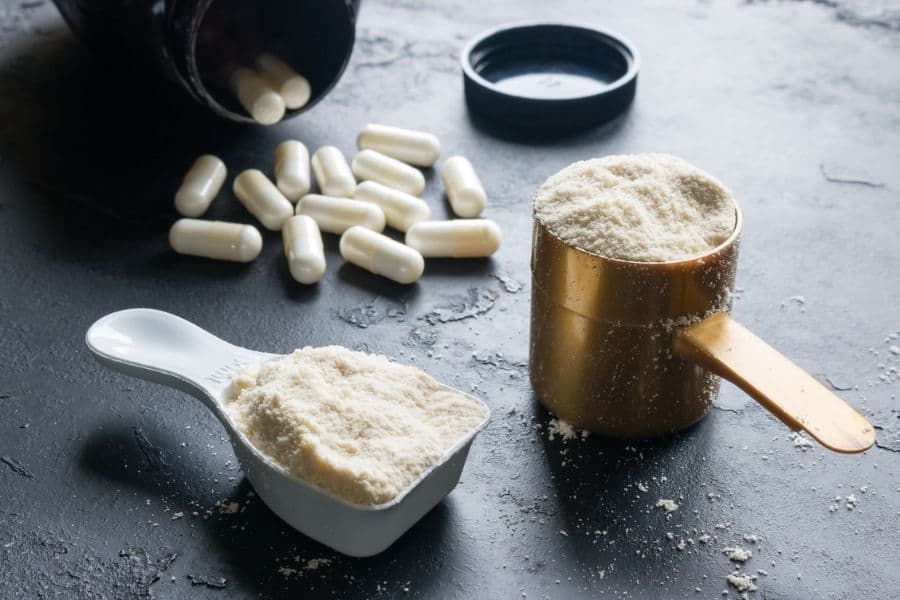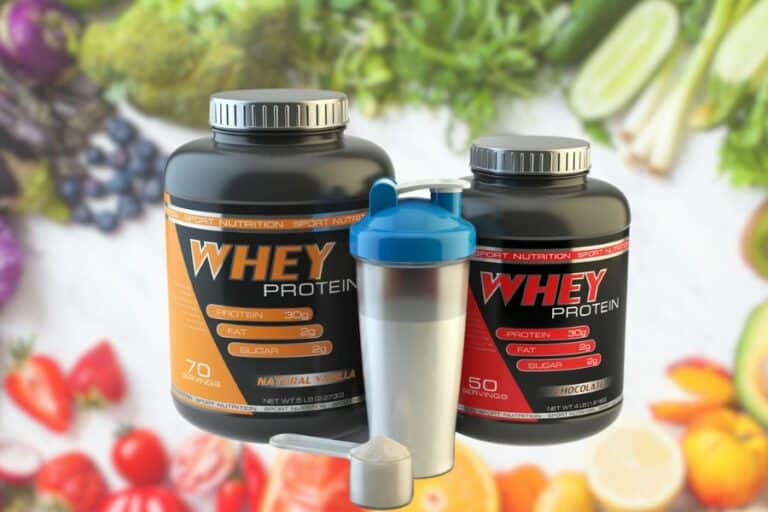Is Creatine Natty? What Science Says About This Popular Supplement

Is Creatine Natty? | Creatine and Natural Bodybuilding | Sports Governing Bodies on creatine | Benefits | Creatine vs Anabolic Steroids | creatine and testosterone | Supplementation Tips
Creatine, a popular supplement in the fitness world, plays a crucial role in providing energy for high-intensity activities. But the burning question remains: Is creatine natty? In simple terms, the answer is yes.
Creatine is a natural compound that is naturally available in small amounts in red meat and fish. However, there are also artificial forms of creatine available. In this article, we will explore the distinction between natural and artificial creatine, shedding light on their impact on athletic performance.
Is Creatine Natty?
Yes, creatine is considered natty. In simple terms, creatine is a natural supplement.
In the context of supplements, “natty” refers to substances that occur naturally in the body or can be obtained from natural sources. To categorize a supplement as natty, it should meet certain criteria, such as being found in nature or synthesized in the body itself.
Does Creatine work as a natural bodybuilding supplement?
When we examine creatine based on the above mentioned criteria, we find that it is naturally present in small amounts in meat and fish. It is also naturally produced in trace amounts within the human body itself. This makes creatine a natty supplement.
Additionally, creatine does not cause muscle gain or increase muscle performance at the rate of other artificial supplements, anabolic steroids, and growth hormones like testosterone.
Studies [1]National Library of Medicine: Creatine Use in Sports have observed to help the body to perform at its peak by supplying short-term, maximum-intensity energy to the muscle cells.
This is why none of the major anti-doping agencies, like the United States Anti-Doping Agency(USADA) and the World Anti-Doping Agency(WADA), have added creatine supplements to their list of banned substances [2]World Anti-Doping Agency: The Prohibited List.
Sports Governing Bodies’ stance on creatine supplements
Sports governing bodies generally do not prohibit the use of creatine supplements, as they are considered legal and widely available.
Unlike other performance-enhancing drugs, creatine is a naturally occurring compound, and athletes often consume creatine supplements like creatine monohydrate for increased ballistic strength, muscle gains, and overall performance.
The creatine supplement is typically considered a dietary supplement and not classified as a performance-enhancing drug(PED) by organizations such as the World Anti-Doping Agency (WADA) and the United States Anti-Doping Agency (USADA). This is because creatine supplementation is not considered to provide an unfair advantage or violate anti-doping regulations.
What is Creatine?
Creatine [3]Cleveland Clinic: Creatine is a naturally occurring compound synthesized from amino acids in the body. It exists in the form of creatine phosphate and is primarily found in skeletal muscle tissue.
Creatine plays a crucial role in energy production during intense workouts, as it converts into adenosine triphosphate (ATP). ATP is the primary source of energy required for muscle contractions.
While red meat and seafood provide small amounts of creatine in the diet, many individuals, including natural bodybuilders, take creatine supplements to enhance exercise performance.
Creatine supplements are osmotic in nature. Therefore people may notice that creatine leads to weight gain in some people. Since this is a result of volumization or an increase in water molecules within the cells, one needn’t worry about it being actual body fat.
Benefits of Creatine
Now that we have answered the question of “is creatine natty?” let’s analyze the potential benefits of consuming a creatine supplement.
1. Increased ATP Production
ATP refers to adenosine triphosphate, the energy currency of cells. Creatine supplementation has been shown to increase the intramuscular stores of phosphocreatine, a precursor to ATP production.
This can result in improved energy production and enhanced performance during short-duration, high-intensity activities, such as weightlifting or sprinting.
The increased availability of ATP can also aid in muscle recovery and reduce fatigue, allowing individuals to train harder and potentially achieve greater gains in strength and power.
2. Increased muscle strength and power
Increased muscle strength and power are notable benefits of consuming a creatine supplement. Creatine supplementation can increase muscle power output, allowing individuals to generate more force and perform explosive movements with greater efficiency.
3. Enhanced athletic performance
The enhanced athletic performance benefits of creatine have been observed in activities such as sprinting, jumping, weightlifting, and repetitive high-intensity training.
By increasing phosphocreatine levels in the muscles, creatine supplementation enhances the availability of ATP, leading to improved energy production during high-intensity exercise. This can result in increased power, strength, and endurance, allowing athletes to perform at a higher level for longer durations.
4. Improved muscle recovery
By supplementing with creatine, you can improve your muscle recovery time and reduce workout-induced muscle soreness.
Performing intense exercises cause micro-tears in your muscles, which is how muscle hypertrophy or muscle growth happens. Creatine plays a role in activating the satellite cells in your muscles, which aids in healing the micro-tears.
This is why some studies have concluded [4]National Library of Medicine: Creatine for Exercise and Sports Performance, with Recovery Considerations for Healthy Populations that creatine supplements might have potential benefits for people who need post-injury recovery.
5. Increased Reps Before Failure
By increasing the availability of ATP in the muscle cells, creatine allows muscles to contract more efficiently and for a longer duration.
This means that athletes and individuals supplementing with creatine are able to push their muscles further, resulting in an extended capacity to perform higher numbers of reps before reaching failure.
Additionally, creatine aids in the replenishment of ATP during recovery periods, further supporting sustained performance during subsequent sets.
6. Potential neuroprotective and cognitive benefits
The human brain naturally produces creatine, and some studies have suggested that consuming a creatine supplement might help to improve cognitive function.
Consuming creatine supplements can increase the phosphocreatine stores in the brain. Increasingly, research on creatine and cognitive health is showing positive results, with some studies demonstrating that creatine may provide neuroprotective effects.
This means that creatine supplementation might be helpful in improving short-term memory and combatting neurological disorders such as dementia, Alzheimer’s, and Parkinson’s.
Creatine vs Anabolic Steroids
Creatine differs from steroids in many ways. Commonly, creatine as a supplement is considered more acceptable and safe than anabolic steroids.
Creatine is a naturally occurring non-essential amino acid that increases ATP production, providing energy for muscle contractions. It is approved by all major anti-doping organizations when taken in recommended doses.
On the other hand, anabolic steroids are synthetic substances that mimic testosterone and are illegal without a prescription. They are associated with numerous negative physical and psychological side effects.
Table of Differences:
| Creatine | Anabolic Steroids |
| Naturally occurring | Synthetic |
| Increases ATP production to boost short-burst, maximum intensity energy. | Mimics testosterone, a growth hormone, to boost muscle growth. |
| Approved by anti-doping agencies like WADA, IOC, and NCAA. | Illegal without prescription, and banned by anti-doping agencies. |
| Obtained from dietary sources. | Not synthesized by the body |
| No major negative side effects when consumed within recommended dosage levels. | Associated with several side effects. |
Does Creatine Help Boost Testosterone?
The simple answer is no. Creatine is not directly involved in boosting testosterone levels. Creatine supplementation has been found to enhance exercise performance and increase muscle mass, which might indirectly influence testosterone levels.
Some older research [5]PubMed: Three weeks of creatine monohydrate supplementation affects dihydrotestosterone to testosterone ratio in college-aged rugby players has suggested that it may indirectly affect testosterone in certain individuals. However, the effects on testosterone vary among individuals, and the overall impact is not well-established.
Natural creatine supplementation tips
To ensure that your creatine supplement routine remains natural, safe, and effective, follow these tips:
- Choose a pure and natural creatine supplement. Avoid supplements that contain unnecessary additives, fillers, or artificial ingredients. Read the ingredient list carefully and opt for products with minimal additional substances.
- Look for creatine monohydrate as the primary ingredient. This form of creatine has been extensively studied and is considered safe and effective for natural bodybuilders.
- Purchase from reputable brands and manufacturers that prioritize quality and transparency. Look for certifications and third-party testing to ensure the purity and authenticity of the product.
- Be cautious of claims that sound too good to be true. Unrealistic promises or exaggerated benefits may indicate a supplement with questionable ingredients or misleading marketing tactics.
- Monitor your dosage carefully and follow the recommended guidelines. Excessive intake of creatine can lead to potential side effects, so it’s essential to adhere to proper dosing instructions.
- Stay hydrated by drinking plenty of water throughout the day. Creatine supplementation can increase water retention in the muscles, and optimal hydration can help to reduce this. Find out how much water you should drink while on creatine supplementation.
- Periodically reassess your supplementation needs. While creatine can be beneficial for natural bodybuilders, it’s important to evaluate its ongoing impact on your goals and adjust your routine accordingly.
Conclusion
To conclude with the point we started at, the answer to “is creatine natty?” is a resounding yes. Pure and natural creatine, when taken in moderation, can offer many benefits for natural bodybuilders and athletes.
It is important to select a quality creatine supplement with minimal additives or fillers and to adhere to proper dosing guidelines for optimal results.
References
| ↑1 | National Library of Medicine: Creatine Use in Sports |
|---|---|
| ↑2 | World Anti-Doping Agency: The Prohibited List |
| ↑3 | Cleveland Clinic: Creatine |
| ↑4 | National Library of Medicine: Creatine for Exercise and Sports Performance, with Recovery Considerations for Healthy Populations |
| ↑5 | PubMed: Three weeks of creatine monohydrate supplementation affects dihydrotestosterone to testosterone ratio in college-aged rugby players |







